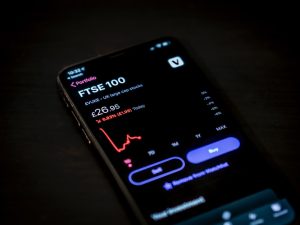Forex trading is the buying and selling of currencies in a decentralized market. The foreign exchange market, also known as the forex market, is the largest and most liquid market in the world. Forex trading involves the exchange of one currency for another currency at an agreed-upon price. The forex market operates 24 hours a day, five days a week, and is open to traders from all over the world.
Forex charges a fee or commission when currency is bought or sold. The amount of the fee or commission varies depending on the broker and the type of account you have. Forex brokers make money by charging a spread, which is the difference between the bid and ask prices of a currency pair. The bid price is the price at which a trader can sell a currency, while the ask price is the price at which a trader can buy a currency. The spread is the difference between these two prices.
Forex brokers may also charge a commission on each trade or a fee for using their platform. These fees and commissions can vary depending on the size of the trade, the currency pair being traded, and the type of account you have. Some brokers may offer commission-free trading, but they may have wider spreads to compensate for this.
Forex charges may also vary depending on the type of order you place. A market order is an order to buy or sell a currency at the current market price. A limit order is an order to buy or sell a currency at a specific price or better. A stop-loss order is an order to sell a currency if it reaches a certain price, which helps traders limit their losses.
Forex charges may also be affected by the currency pair being traded. Some currency pairs have tighter spreads than others, which means that the difference between the bid and ask prices is smaller. This can make trading these pairs more cost-effective. The most popular currency pairs, such as EUR/USD and USD/JPY, tend to have tighter spreads than less popular pairs.
Forex charges can also be affected by the leverage used in trading. Leverage allows traders to control a larger position with a smaller amount of capital. However, it also increases the risk of losses. Forex brokers may charge higher fees or commissions for trades using high leverage, as they carry a higher risk.
In conclusion, forex charges vary depending on the broker, the type of account, the type of order, the currency pair being traded, and the leverage used. Forex charges can include spreads, commissions, and fees for using the trading platform. Traders should carefully consider these charges when choosing a broker and trading strategy. It is important to choose a broker that offers transparent pricing and competitive fees, as this can help traders maximize their profits and minimize their losses.





